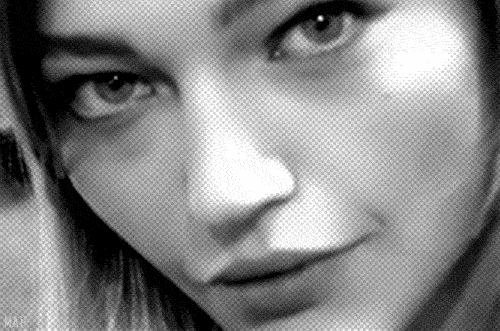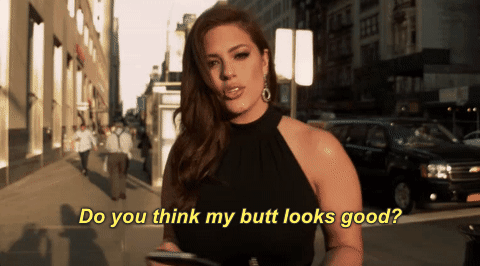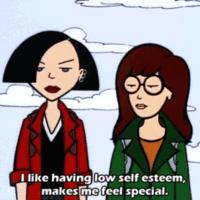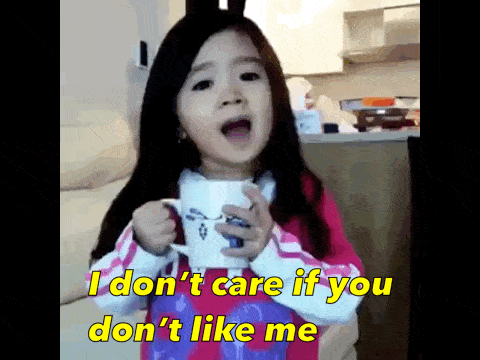The Dark Side of Beauty Ideals
- ThoughtsandThings
- Jan 12, 2020
- 4 min read
Updated: Jul 8, 2020

It was the last week of February of 2016 in Santiago de Chile and the person I was with mentioned something that really stuck with me. He was telling me about his sister and how she recently auditioned for a TV commercial. “She’ll probably get it. She’s blonde. You should audition too, you're blonde with green eyes.” He said. “But I don't speak Spanish!” I said, dumbfounded at the fact that being blonde with green eyes trumped being able to speak more than two words of Spanish in a Spanish-speaking country. He looked at me with a look that said, yep I know but this is just the way things are here. Fast forward to almost four years from that moment and I’ve experienced many similar interactions. In some vulnerable cases, they were followed up by personal insecurities of wishing they looked different and not positively identifying with their beautiful brown eyes & hair. My heart sank a bit lower each time this conversation came up. If you take a look around at billboards, commercials, social media & celebrities, etc. you will start to put two and two together. Why would people feel this way? Why would they deem their eye color "less attractive" over another eye color? I did a bit of digging around and came across a brief commentary from Contact Chile that touches on Chile’s relationship with blond by stating, “Unlike in other South American countries, being of native heritage is a disgrace in Chile - the beauty ideal is being blonde, easily confirmed by TV advertising as well as the countless artificial blondes.” A quick way to confirm the truth of this statement is to go to the women's fashion section of one of the Chilean department stores such as Paris, Falabella or Ripley and take a mental note of the lack of diversity.
What does Beauty Ideal mean?

Beauty Ideals or Standards are social constructs of what is considered beautiful according to the culture, current moment, and the social expectations of men or women. To further illustrate this idea, I encourage you to take three minutes out of your day to watch BuzzFeed’s short clip on the evolution of Beauty Ideals since Ancient Egypt to the current era of beauty. By the time the video ends, we see the Beauty Ideals from the last 30 years which fall in the “Heroin Chic” and “Postmodern Beauty” eras. To point out how troublesome these beauty standards are doesn’t involve a lot of brainpower. The fact that we spent ten years worshiping extreme thinness and went as far to combine the words heroin and chic together to describe beauty is absolutely horrifying. This was around the time when Kate Moss uttered the infamous words “Nothing tastes as good as skinny feels”. Fast forward to today, and Postmodern Beauty isn’t that much of a step up either as the “Thigh Gap” obsession has created a frenzy about the space or lack of space between our thighs. I realized how ridiculous this concept was when I had to explain it to my boyfriend who was completely boggled by the concept and it’s relation to beauty. It’s hard to be a confident & self-assured woman in today's society with unrealistic beauty ideals everywhere. It's mentally & emotionally exhausting and it’s affecting us in more ways than we might be aware of.
How exactly is this affecting us?

Turns out that Beyoncé was right, pretty does hurt. Allure magazine sat down with a mix of girls from 6-18 to talk about body image and the results were startling, to say the least. Girls as young as 10 opened up about insecurities of lacking a “thigh gap” to purposefully choosing clothes that make them appear skinnier. The young & wise Sofia Rodriguez-Dantzler further explains the severity of this issue in her TED Talk. Here are a few statistics that I found particularly alarming:
42% of first and third graders reported “I want to be skinnier.''
81% of 10-11-year-olds are afraid of being fat.
Half of the teenage girls have unhealthy eating habits such as skipping meals and voluntary vomiting.
She also pointed out that the Body Ideal portrayed by the media is only naturally possessed by 5% of women. So where does that leave the rest of the 95% of us? Again, as Beyoncé put it in her hit song from 2013, it leaves us not feeling so great about ourselves. I can say from personal experience that I didn’t produce my best work during my days spent mulling over my insecurities. Instead, most of my energy went towards obsessing over my appearance or seeking validation from others. If this was my experience as a white, green-eyed, blondish woman, how does this affect those who are hardly represented at all such as Black, Latin or Asian girls, and boys? I have a hunch that the lack of representation hinders more than helps them. As for the 5% represented in the media, it doesn’t seem like it helps them either. So if 95% are not represented at all and the 5% that are represented don't feel good either, we're all silently suffering from this unrealistic Body Ideal.
How do we fix this?

I had a few ideas of my own and was excited to find Meaghan Ramsey’s powerful TED Talk, Why Thinking You’re Ugly is Bad for You. Through Meaghan’s research, she has found the following six factors that are essential in tackling this problem. Those six factors are:
Family, Friends & Relationships
Media & Celebrity Culture
Teasing & Bullying
Competing and comparing looks
Talking about appearance
Respecting & looking after yourself.
We can all be a bit more like Meaghan and keep these six factors in mind as we go about our busy lives. Do you support your friends and family? Do you uplift your friends by giving them genuine compliments about their character that build healthy self-esteem? Do you speak up when someone is being bullied for their looks? Do you compete and compare yourself to others? If so, just being aware of this is the first step to breaking it. How do you speak about yourself? In your head and out loud? Do you practice self-love and self-care or is it something you push off as unimportant? The solution begins by asking ourselves these questions every day and trying our best to answer them honestly. The solution to this problem begins with each one of us. Let's start today by quieting our inner critic and turning up our inner cheerleader.
